Essays by Arthur C . Wolf
Childhood & Philosophy, 2024
Presentation/essay on a collaborative publication ‘waves of flickering murmurs in everyday life: ... more Presentation/essay on a collaborative publication ‘waves of flickering murmurs in everyday life: playing between ages’ in Childhood & Philosophy (December 2024; co-authors Jaynes, J, Costa Carvalho, M., Johansson, V., Almeida, T., et al.), to which I contributed this essay.
It was organized by the wonderful transdisciplinary group Adventures in Posthumanism at the University of Plymouth Institute of Education, UK. This talk is based on the revised and extended version of my original contribution.

Childhood & Philosophy, 2024
Matthew Lipman's Thinking in Education develops an approach to philosophical inquiry with childre... more Matthew Lipman's Thinking in Education develops an approach to philosophical inquiry with children (PwC) that claims to develop critical, creative and caring thinking. With Lipman, these kinds of thinking are primarily tied to analytic-logical commitments, and as such, his approach concerns only one way to conceptualize thinking. To address this issue and create space for another understanding, I introduce the concept of affect based on the work of the French philosopher Gilles Deleuze. From a theoretical perspective, affect helps to deepen the relationship between thinking, the body and experience in PwC; in addition, from a practical standpoint, it expands and enriches facilitation practices and curriculum design. To explore affect, I first show why PwC would benefit from such a theoretical expansion while also looking at connections already present within the literature on PwC. After a brief overview of affect theory and some of its initial applications to education, I propose a reading of Deleuzian affect augmented by thinkers like Claire Colebrook and Brian Massumi. Finally, I explore philosophical inquiry through affect and suggest how facilitation practices and curriculum design can respond in lieu of this conceptualization. This response examines several areas: inquiry, concepts, the community and ethical-political engagement.

existential urgency: a provocation to thinking “different”, Mar 2023
In this essay we expand the notion of thinking by emphasizing the provocation and urgency to thin... more In this essay we expand the notion of thinking by emphasizing the provocation and urgency to think and by reconceptualizing thinking as an embodied practice. The aim is to expand Lipman and Sharp’s approach to philosophical inquiry with children and show how other ways of thinking can be included. We strive to unfold a way of “thinking” that is both different from rationality (critical thinking) as well as from creative and caring thinking. In the first part of the paper, we discuss the merits of Lipman and Sharp’s critical, creative and caring thinking within the Community of Philosophical Inquiry (CPI). We then expand Lipman/Sharp’s philosophical method through Ekkehart Marten’s Five-finger Model, which allows for different philosophical approaches. In the second half of the paper, we draw on Martin Heidegger’s What is called thinking? to develop his concept of the “call” to think together with its related notions of provocation and urgency. Building on this, we draw on Maurice Merleau-Ponty to show how this call is not an intellectual activity or mere exercise of the “mind” but rather affects our entire existence. As such, thinking becomes a response to an existential urgency that is an embodied practice. Using concepts like embodiment, affect, and sensibility, we try to widen our conception of thinking in a CPI. Finally, we hope this will allow facilitators to hear the unique voice of every child so that no one is left unheard.

As facilitators and members of communities of philosophical inquiry (CPIs), we are aware that the... more As facilitators and members of communities of philosophical inquiry (CPIs), we are aware that the question often lies at the heart of a rich and productive dialogue. Yet we also know how difficult it is to cultivate this ‘art of questioning’. In this chapter we will (1) start with an overview on ‘the question’ in the Philosophy for Children (P4C) literature, (2) describe what Gadamer describes as a ‘philosophical question’, (3) explore how to recognize and cultivate such questions in a CPI, and (4) make suggestions for how so-called ‘closed questions’ (knowledge questions) can be transformed into open questions. We will approach these tasks by connecting Plato’s ‘philosophical attitude’ to Gadamer’s notion of experience and focus on the often hidden inter- and intrapersonal upheavals that forego the posing of a question. What this paper will not do is turn Gadamer’s specific description of ‘philosophical questions’ into a universal statement about the nature of a philosophical question, nor will we offer a step-by-step method. Rather, we suggest that a meaningful CPI sparks from the authentic desire to know. This desire to know can be encouraged, but not controlled.
Collaboration by Arthur C . Wolf

Childhood & Philosophy, 2024
The article explores the rich and varied experiences of a collective writing project, unfolding t... more The article explores the rich and varied experiences of a collective writing project, unfolding through an anecdote involving Charlie, a young boy who creatively disrupted conventional photography methods. This incident, during an evening promenade by the sea in Ericeira (Portugal), epitomizes the project's embrace of playfulness and exploration of diverse perspectives–materialized through Charlie's playful insistence on experimenting with different angles. The event embodied the group’s approach to writing, leading to a collective inquiry into the interplay of ages, angles, and other themes like waves, threads, shadows, and liminal spaces. The project, driven by the Between Ages Collective, began with informal gatherings in Plymouth, UK, and expanded into a year-long online reading group. Participants, spanning different generations and academic stages, shared various materials, including films, picture books, and scholarly texts, which inspired individual contributions. Influenced by the Collective's collaborative spirit, these contributions explore the concept of 'between ages' – a metaphorical and literal space of transition and fluidity. Contributors were invited to craft pieces that delve into the 'between ages' theme, often exploring serendipitous moments that transform interactions and experiences. The writing tries to capture a sense of openness and curiosity, embracing the uncertainties and ambiguities inherent in the process. The works do not strictly adhere to conventional academic or narrative forms but rather emerge from the collective's shared experiences, including cooking, eating, swimming and walking together. The article suggests that these writings are not meant to be definitive or conclusive but are explorations that invite readers to engage with the mundane and profound textures of everyday life. The stories and themes explored are marked by their diversity in style, rhythm, and imagery, ranging from reflections on the philosophy of shadows to the profound implications of intergenerational and interspecies relationships. The Collective’s work is presented as an ongoing experiment in thinking and writing together, with each piece offering unique insights into the fluid and often blurred boundaries between different states of being. This openness to the in-between spaces brings into question the notion of fixed identities and experiences, inviting a more nuanced understanding of the relational dynamics that shape existence. The article allows the readers to delve into these narratives and engage with the myriad ways they resonate with broader themes of being, storying, and connecting.
Childhood & Philosophy, 2024
Presentation on a collaborative publication ‘waves of flickering murmurs in everyday life: playin... more Presentation on a collaborative publication ‘waves of flickering murmurs in everyday life: playing between ages’ in Childhood & Philosophy (December 2024), organized by the transdisciplinary group Adventures in Posthumanism at the University of Plymouth Institute of Education, UK. This talk is based on a revised and extended version of my original contribution.
Meeting the Ignos, 2018
Let Immanuel, the fox, and his “Igno” friends take you on an ignoble adventure. With a detailed p... more Let Immanuel, the fox, and his “Igno” friends take you on an ignoble adventure. With a detailed parent/teacher guide and philosophical dictionary, adults can use this book to reason together with youngsters about how best to discover ways to overcome “igno” obstacles to good thinking and view such encounters as opportunities for learning and growth.
The ultimate goal of this book is to facilitate “reasoned dialogue” between children, and between children and adults, so that all who engage in this “ignoble adventure” will come to embrace “reasoning with others” as the best possible process whereby we can all become the best that we can be…
by Darryl R Macer, Lana Issa, Issa Abyad, Sagaon-teyssier L, Syrine Snoussi, Arthur C . Wolf, Souria Saad Zoi, Zosimo Lee, John T. Giordano, Azizan Baharuddin, and Philip Cam ISBN 978-92-9223-378-5 (Print Version) The designations employed and the presentation of material... more ISBN 978-92-9223-378-5 (Print Version) The designations employed and the presentation of material throughout this publication do not imply the expression of any opinion whatsoever on the part of UNESCO concerning the legal status of any country, territory, city or area, or of its authorities, or concerning the delimitation of its frontiers or boundaries.

This research links conceptual mapping of the content of national goals of teaching philosophy in... more This research links conceptual mapping of the content of national goals of teaching philosophy in different countries with the recommendations of high level officials on the goals of teaching philosophy as stated in the Action Plan on the Promotion of Philosophy Teaching in Asia and the Pacific (APPPTAP) that were agreed upon during the High-level Regional Meeting on the Teaching of Philosophy in Asia and the Pacific held in May 2009. We have constructed a conceptual framework for goals in primary and secondary education based on the three main goals and sub-sets of philosophy education according to the APPPTAP. The goals are understanding and search for wisdom, development of capacities and development of dispositions. Apart from these three sets of goals we have added the vision of the relevant country’s Ministry of Education and the set of values upon which the curriculum is based. The conceptual maps of goals in primary and secondary education at the national level provide an overview of the extent to which educational systems in Asia and the Pacific comply with the agreed upon goals in the APPPTAP and show which concepts are emphasized and which are not. Finally, the conceptual maps complement the country summary reports on the teaching of philosophy in Asia and the Pacific, which also include philosophy related courses and materials used. Combining these shed light on the connection between concepts at the national level and their implementation in the classroom. They provide opportunities for analysing inferential practices in education and how they conform to the concepts emphasized in the relevant educational system.
Papers by Arthur C . Wolf
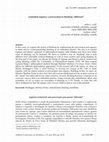
childhood & philosophy, Mar 25, 2023
In this essay we expand the notion of thinking by emphasizing the provocation and urgency to thin... more In this essay we expand the notion of thinking by emphasizing the provocation and urgency to think and by reconceptualizing thinking as an embodied practice. The aim is to expand Lipman and Sharp's approach to philosophical inquiry with children and show how other ways of thinking can be included. We strive to unfold a way of "thinking" that is both different from rationality (critical thinking) as well as from creative and caring thinking. In the first part of the paper, we discuss the merits of Lipman and Sharp's critical, creative and caring thinking within the Community of Philosophical Inquiry (CPI). We then expand Lipman/Sharp's philosophical method through Ekkehart Marten's Five-finger Model, which allows for different philosophical approaches. In the second half of the paper, we draw on Martin Heidegger's What is called thinking? to develop his concept of the "call" to think together with its related notions of provocation and urgency. Building on this, we draw on Maurice Merleau-Ponty to show how this call is not an intellectual activity or mere exercise of the "mind" but rather affects our entire existence. As such, thinking becomes a response to an existential urgency that is an embodied practice. Using concepts like embodiment, affect, and sensibility, we try to widen our conception of thinking in a CPI. Finally, we hope this will allow facilitators to hear the unique voice of every child so that no one is left unheard.
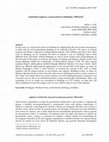
childhood & philosophy
In this essay we expand the notion of thinking by emphasizing the provocation and urgency to thin... more In this essay we expand the notion of thinking by emphasizing the provocation and urgency to think and by reconceptualizing thinking as an embodied practice. The aim is to expand Lipman and Sharp’s approach to philosophical inquiry with children and show how other ways of thinking can be included. We strive to unfold a way of “thinking” that is both different from rationality (critical thinking) as well as from creative and caring thinking. In the first part of the paper, we discuss the merits of Lipman and Sharp’s critical, creative and caring thinking within the Community of Philosophical Inquiry (CPI). We then expand Lipman/Sharp’s philosophical method through Ekkehart Marten’s Five-finger Model, which allows for different philosophical approaches. In the second half of the paper, we draw on Martin Heidegger’s What is called thinking? to develop his concept of the “call” to think together with its related notions of provocation and urgency. Building on this, we draw on Maurice Me...
Routledge eBooks, Nov 15, 2022

Introduction: Thinking about and inventing concepts is the hallmark of the philosophical endeavor... more Introduction: Thinking about and inventing concepts is the hallmark of the philosophical endeavor. Concepts like fairness, beauty, friendship and knowledge are some of those with a long philosophical lineage that start with questions like ‘What is …?’, ‘Why?’, ‘How is it different from …?’ and ‘Does it then follow that…?’ These questions are crucial, as they set up a relationship between concepts and conceptualizers such that practical concept-utilization can be done in better or worse ways. In daily life we are constantly confronted with situations that call for inquiries into these big topics. Thus, for instance, if I wonder if I should tell him that his new hair-style looks great, while I actually think it doesn't, that requires that I work through the concepts of friendship and beauty, as well as the concepts of truth and lying. "Should I tell her I think her marriage has taken a wrong turn?" "Should I tell him that his breath smells?" Several concepts pl...
Mind, Culture, and Activity, 2015


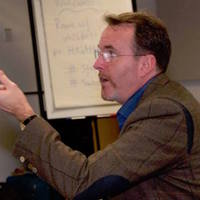

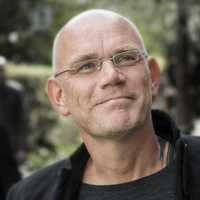


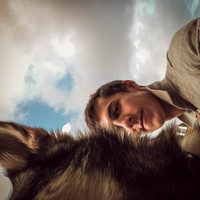
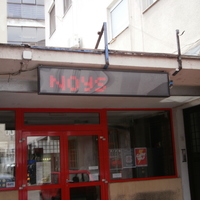


Uploads
Essays by Arthur C . Wolf
It was organized by the wonderful transdisciplinary group Adventures in Posthumanism at the University of Plymouth Institute of Education, UK. This talk is based on the revised and extended version of my original contribution.
Collaboration by Arthur C . Wolf
The ultimate goal of this book is to facilitate “reasoned dialogue” between children, and between children and adults, so that all who engage in this “ignoble adventure” will come to embrace “reasoning with others” as the best possible process whereby we can all become the best that we can be…
Papers by Arthur C . Wolf
It was organized by the wonderful transdisciplinary group Adventures in Posthumanism at the University of Plymouth Institute of Education, UK. This talk is based on the revised and extended version of my original contribution.
The ultimate goal of this book is to facilitate “reasoned dialogue” between children, and between children and adults, so that all who engage in this “ignoble adventure” will come to embrace “reasoning with others” as the best possible process whereby we can all become the best that we can be…